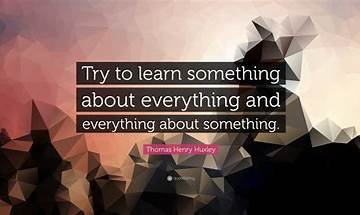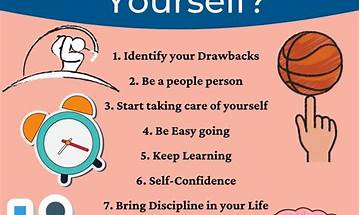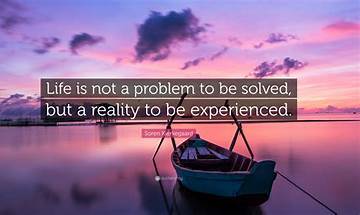Why are you always running away?

Cao doctor telephone consultation studio
My friend Alai told me that she recently resigned again, which is the third time she has changed jobs since she graduated one and a half years ago.
When Alai graduated, she watched her classmates submit resumes to find a job, but she didn't know what she would do in the future. After submitting several resumes, she didn't respond. She simply moved back home and relied on her parents to support her.
I asked her: "Other students have found jobs, and you are still studying at home. Will you feel very anxious?"
She said: "Of course, I will be anxious, but I feel even more anxious when I think about submitting my resume, interviewing, going out early and returning to work late every day, and dealing with colleagues and bosses."
She was the only daughter of her parents, so she was raised for half a year. Later, she really couldn't stand it, so she got a clerical job through a relationship, and she only worked for a week.
The reason is that the leader asked her to sort out a document, which was her first job, and she stayed at home for half a year before, not only doing it slowly, but also making many mistakes.
When she handed the information up, the leader was a little dissatisfied and said, "How did this happen?"
Loy said nothing and handed in his resignation report the next day.
Later, Loy went to an advertising company as a copywriter, and when he was a copywriter, he was inevitably ordered to change by customers. Loy couldn't stand this and ran away after a long time.
Now, Alai works as a salesman in a company, but Alai doesn't want to visit customers and his performance is not good, so he simply resigned.
Listening to Loy finish his resignation experience, a picture came to my mind:
On a road, Alai is running wildly, followed by surging pursuers: employment pressure, workplace pressure …
Loy ran and hid, trying to get away from these pursuers, but in the process of avoiding, he kept hitting a high wall and fell badly.
Not only Loy, but also many people's lives are made up of "escape" again and again:
"Obviously, I will take the exam the next day, but I still have to watch the drama and brush Tik Tok until 3 am."
"Important plans, obviously with plenty of time, have to be put off until the last day to start writing."
"Obviously, her boyfriend cheated on her and went home violently, and she also defended her boyfriend, saying that her boyfriend was just confused for a while ..."
For these behaviors, Joseph Bourgau, an American clinical psychologist, has an accurate explanation in Why We Always Avoid: "Psychological Defense Mechanism".
In his view, what people call "escape" is not people's natural laziness, but a measure for people to protect themselves in the face of pain.
The problem is that when this defense is too serious, it will have a great impact on our interpersonal relationship and career.
If you have evaded difficulties again and again, and criticized yourself again and again, then you should read this article carefully, and maybe you will feel completely different.
In fact, the psychological defense mechanism has two sides, which is actually necessary and beneficial for everyone and can help people actively cope with those inevitable pains.
But this kind of comfort is only a temporary comfort, and it can't provide much help for future development. If you indulge in it, you will only become complacent.
"The defense mechanism only cares about the moment, regardless of the consequences. It is a thoughtless reflective behavior of a person, just to avoid the pain of the moment, but not to consider the long-term losses caused by it."
Failure to face pain means failure to grow.
No pain means that you can only live in an imaginary world constructed by yourself. You are the best and never make mistakes, which means that you can't find your own shortcomings and improve yourself.
If you are tired of the "constant escape" life and want to change this state of life, I would like to introduce several ways to you.
1. Streamline the source of information input
Distraction is actually an escape mechanism. We immerse ourselves in Weibo, Tik Tok and other forms of entertainment every day in order to escape the daily problems we have to face.
Amid all kinds of noise, we can't face up to our hearts and find out what we really want.
Therefore, if we can streamline the source of information input from the source, then our energy will not be dispersed to unimportant things, and we can calm down and concentrate on our own hearts.
Step 2 be honest with yourself
Everyone wants to be a kind and tolerant person, but human beings can't always be in a friendly state. People always have various emotions that are not accepted by society: anger, hatred, jealousy …
These emotions are also an indispensable part of our emotional composition. Don't expect yourself to overcome or get rid of these painful feelings.
When pain occurs, don't cling to what you feel "should" do, but learn to accept and seek truth from facts and deal with it in a healthier way.
3. Mindfulness practice
Many people don't realize their emotional reaction when they are angry, so we need to practice mindfulness deliberately.
Take a deep breath, focus on your breath and feel your body and emotions, instead of being led by emotions.
By doing so, you can cultivate peace of mind and get out of daily chores.
Declaration: All article resources on this website, unless otherwise specified or labeled, are collected from online resources. If the content on this website infringes on the legitimate rights and interests of the original author, you can contact this website to delete it.






